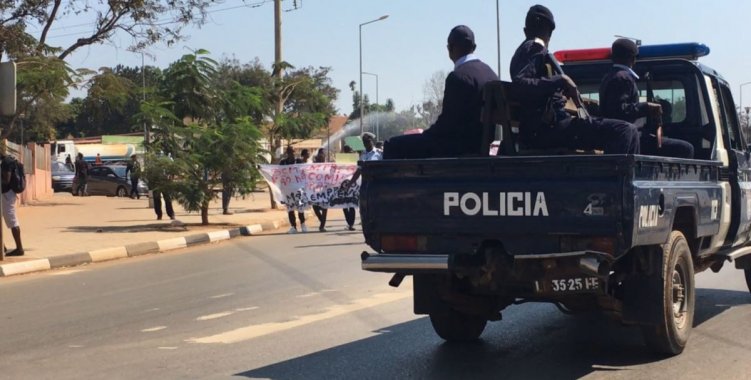The law no. 10/20 of 16 April, already published in Diário da República, to which Lusa had access this Friday, also provides for the "insertion and adaptation of the undercover agent and third parties" in a certain environment, group or organisation under investigation.
Covert actions include investigative measures or other types of police operations "carried out, directed or coordinated by criminal police bodies, exclusively, or in collaboration with the other organs of state security", states the diploma.
The purpose of covert actions, in accordance with the law, is "to prevent or repress crimes by concealing the identity of the agent and his mission".
Collecting criminal information, discovering the methods of executing crimes, deterring and preventing the consummation of criminal actions and discovering evidential material are also some of the purposes of covert actions.
According to the Angolan authorities, the new legal provision is designed to adapt the country's legal system to international instruments and "to respond to complex and organised criminal phenomena that threaten peace, tranquillity and internal and international security.
The undercover agent, the law stresses, must act under a "fictitious identity", which is provisional in nature and must be issued and granted by the National Identification Service by joint decision of the holders of the Security and Justice and Human Rights bodies.
"The decision granting the fictitious identity is classified as secret", reads the document.
Regarding the initiation of covert actions, the new law determines that their execution is requested, by letter, by the criminal police authority with the subsequent knowledge of the Public Prosecution Service (MP).
A third person may also take part in the covert actions and may be effective in the organs of Security and Internal Order, other than the criminal police, the National Defence and the organs of Intelligence and State Security.
In the area of limitations, the undercover agent, who must have good physical complexion, mental health and at least two years of effective service in the organs of defence and security, "must not remain in the same mission for more than three years".
As for the participation of the undercover agent at the trial stage, if the judge deems it indispensable, "the rules of criminal procedure relating to the declarants must be observed".
For the protection and concealment of his identity, the court must "take the necessary measures" to ensure that, at the trial hearing, the undercover agent "is seen in a confidential manner", only by the judge and the public prosecutor, or resort to videoconferencing or early taking of the testimony.







